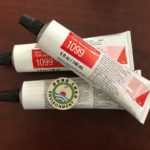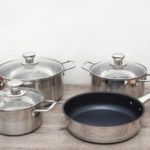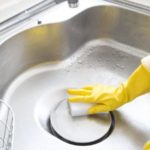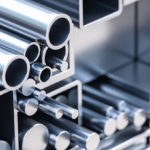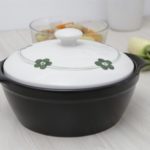Unlike fresh tea, to ensure the quality of dry tea, it should be kept away from air, heat, light, and moisture, as these factors can reduce the tea’s quality, causing it to spoil or mold quickly.
 |
Use glass, ceramic, porcelain containers
Tea is very prone to absorbing moisture and odors, so tea storage must be careful to prevent the tea from oxidizing, which can reduce its taste.
The ideal materials for storing tea are glass, ceramic, porcelain, aluminum, or tin containers without any odor. These containers should have a tightly sealed lid to prevent air from coming into contact with the tea. It is best to use a container with a high-quality rubber seal at the mouth to ensure an airtight seal.
Note that tea should not be stored in plastic containers as the tea will absorb the odor of the plastic, affecting its flavor and making it difficult to drink.
The tea container should be opaque or translucent and airtight, preventing light or air from entering. After each use, the lid must be tightly sealed.
Store in a cool, dark, and dry place
Light and moisture are considered the biggest enemies of dry tea. The best place to store tea is in the kitchen cabinet. The kitchen cabinet typically has less light and a stable temperature that does not change with the weather.
Additionally, it is important not to store tea near the stove as heat and humidity can damage the tea. The refrigerator is also not a suitable place for tea storage.
Do not mix dry tea with non-flavored tea, as they will absorb each other’s odor.
You may also like
Exploring the Uses of Aluminum Alloys in Applications
If you’re curious to find out how an alloy works and the different roles it plays in modern industries, then this article is for you. We’ll provide a comprehensive overview of what an alloy is, the kinds available, and the various applications they are used for, ranging from electronics to construction.


























